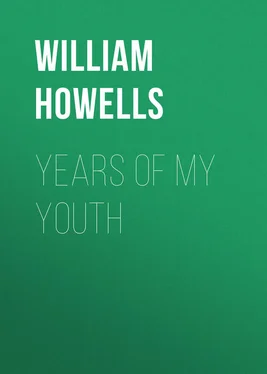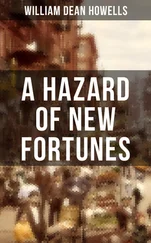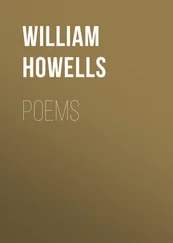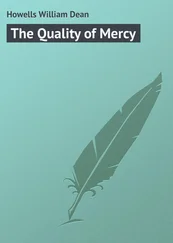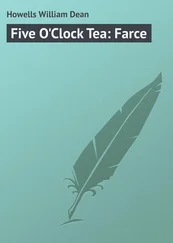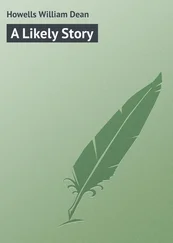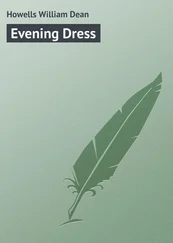William Howells - Years of My Youth
Здесь есть возможность читать онлайн «William Howells - Years of My Youth» — ознакомительный отрывок электронной книги совершенно бесплатно, а после прочтения отрывка купить полную версию. В некоторых случаях можно слушать аудио, скачать через торрент в формате fb2 и присутствует краткое содержание. Жанр: foreign_prose, на английском языке. Описание произведения, (предисловие) а так же отзывы посетителей доступны на портале библиотеки ЛибКат.
- Название:Years of My Youth
- Автор:
- Жанр:
- Год:неизвестен
- ISBN:нет данных
- Рейтинг книги:5 / 5. Голосов: 1
-
Избранное:Добавить в избранное
- Отзывы:
-
Ваша оценка:
- 100
- 1
- 2
- 3
- 4
- 5
Years of My Youth: краткое содержание, описание и аннотация
Предлагаем к чтению аннотацию, описание, краткое содержание или предисловие (зависит от того, что написал сам автор книги «Years of My Youth»). Если вы не нашли необходимую информацию о книге — напишите в комментариях, мы постараемся отыскать её.
Years of My Youth — читать онлайн ознакомительный отрывок
Ниже представлен текст книги, разбитый по страницам. Система сохранения места последней прочитанной страницы, позволяет с удобством читать онлайн бесплатно книгу «Years of My Youth», без необходимости каждый раз заново искать на чём Вы остановились. Поставьте закладку, и сможете в любой момент перейти на страницу, на которой закончили чтение.
Интервал:
Закладка:
My father could, of course, be wiser for others than for himself; the public saved him from becoming a dramatist, but it was he who saved me from any remotest chance of becoming an actor, and later from acquiring the art of the prestidigitator. The only book which I can be sure of his taking from me was a manual professing to teach this art, which I had fallen in with. The days of those years in Dayton were in fact very different from the days in Hamilton when I was reaching out near and far to feed my fancy for fable and my famine for fact. I read no new books which now occur to me by name, though I still kept my interest in Greek mythology and gave something of my scanty leisure to a long poem in the quatrains of Gray’s Elegy based upon some divine event of it. The course of the poem was lastingly arrested by a slight attack of the cholera which was then raging in the town and filling my soul with gloom. My dear mother thought it timely to speak with me of the other world; but so far from reconciling me to the thought of it, I suppose she could not have found a boy in all Dayton more unwilling to go to heaven. She was forced to drop her religious consolations and to assure me that she had not the least fear of my dying.
It was certainly not the fault of the place that we were, first and last, rather unhappy there. For one thing, we were used to the greater ease and simplicity of a small town like Hamilton, and Dayton was a small city with the manners and customs of cities in those days: that is, there was more society and less neighborhood, and neither my father nor my mother could have cared for society. They missed the wont of old friends; there were no such teas as she used to give her neighbors, with a quilting, still dimly visioned, at the vanishing-point of the perspective; our social life was almost wholly in our Sunday-evening visits to the house of my young aunt whose husband was my father’s youngest brother. The pair were already in the shadow of their early death, and in the sorrow of losing their children one after another till one little cousin alone remained. I had not yet begun to make up romances about people in my mind, but this uncle and aunt were my types of worldly splendor in the setting of the lace curtains and hair-cloth chairs of their parlor, with her piano and his flute for other æsthetic grace. He was so much younger that he had a sort of filial relation to my father, and they were both very sweet to my mother, always lonely outside of her large family.
As usual, we lived in more than one house, but the first was very acceptable because of its nearness to the canal; the yard stretched behind it quite to the tow-path, with an unused stable between, which served us boys for circus-rehearsals, and for dressing after a plunge. As in a dream, I can still see my youngest brother rushing through this stable one day and calling out that he was going to jump into the canal, with me running after him and then dimly seeing him as he groped along the bottom, with me diving and saving him from drowning. Already, with the Hamilton facilities, I could hardly help being a good swimmer, and at Dayton I spent much of my leisure in the canal. Within the city limits we had to wear some sort of bathing-dress, and we preferred going with a crowd of other boys beyond the line where no such formality was expected of us. On the way to and fro we had to pass a soap-factory, where the boys employed in it swarmed out at sight of us stealing along under the canal bank, and in the strange outlawry of boyhood murderously stoned us, but somehow did not kill us. I do not know what boys we played with, but after we had paid the immemorial penalty of the stranger, and fought for our standing among them, the boys of our neighborhood were kind enough. One, whose father was a tobacconist, abetted our efforts to learn smoking by making cigars flavored with cinnamon drops; I suppose these would have been of more actual advantage to me if I had learned to like smoking. When we went from his house to another, in what may have been a better quarter, we made no friends that I can remember, and we were never so gay. In fact, a sense of my father’s adversity now began to penetrate to his older children, with the knowledge of our mother’s unhappiness from it.
I am not following any chronological order here, and I should not be able to date my æsthetic devotion to a certain gas-burner in the window of a store under the printing-office. It was in the form of a calla-lily, with the flame forking from the tongue in its white cup; and I could never pass it, by day or night, without stopping to adore it. If I could be perfectly candid, I should still own my preference of it to the great painting of Adam and Eve by Dubuffe, then shown throughout our simple-hearted commonwealth. This had the double attraction of a religious interest and the awful novelty of the nude, for the first time seen by untraveled American eyes; the large canvas was lighted up so as to throw the life-size figures into strong relief, and the spectator strickenly studied them through a sort of pasteboard binocle supplied for the purpose. If that was the way our first parents looked before the Fall, and the Bible said it was, there was nothing to be urged against it; but many kind people must have suffered secret misgivings at a sight from which a boy might well shrink ashamed, with a feeling that the taste of Eden was improved by the Fall. I had no such joy in it as in the dramas which I witnessed in the same hall; as yet there was nothing in Dayton openly declared a theater.
The town had many airs of a city, and there were even some policemen who wore a silver-plated star inside their coats for proof of their profession. There were water-works, and there was gas everywhere for such as would pay the charge for it. My father found the expense of piping the printing-office too great for his means, or else he preferred falling back upon his invention, and instead of the usual iron tubes he had the place fitted with tin tubes, at much less cost. Perhaps the cost was equalized in the end by the leaking of these tubes, which was so constant that we breathed gas by day as well as burned it by night. We burned it a good deal, for our tri-weekly was now changed to a daily, and a morning paper at that. Until eleven o’clock I helped put the telegraphic despatches (then a new and proud thing with us) into type, and between four and five o’clock in the morning I was up and carrying papers to our subscribers. The stress of my father’s affairs must have been very sore for him to allow this, and I dare say it did not last long, but while it lasted it was suffering which must make me forever tender of those who overwork, especially the children who overwork. The suffering was such that when my brother, who had not gone to bed till much later, woke me after my five or six hours’ sleep, I do not now know how I got myself together for going to the printing-office for the papers and making my rounds in the keen morning air. When Sunday came, and I could sleep as late as I liked, it was bliss such as I cannot tell to lie and rest, and rest, and rest! We were duteous children and willing; my brother knew of the heavy trouble hanging over us and I was aware of the hopeless burden of debt which our father was staggering under and my mother was carrying on her heart; and when I think of it, and of the wide-spread, never-ending struggle for life which it was and is the type of, I cannot but abhor the economic conditions which we still suppose an essential of civilization.
Lest these facts should make too vivid a call upon the reader’s compassion, I find it advisable to remember here an instance of hard-heartedness in me which was worthier the adamantine conscience of some full-grown moralist than a boy of my age. There was a poor girl, whose misfortune was known to a number of families where she was employed as a seamstress, and the more carefully treated because of her misfortune. Among others my mother was glad to give her work; and she lived with us like one of ourselves, of course sitting at table with us and sharing in such family pleasures as we knew. She was the more to be pitied because her betrayer was a prominent man who bore none of the blame for their sin; but when her shame became known to me I began a persecution of the poor creature in the cause of social purity. I would not take a dish from her at table, or hand her one; I would not speak to her, if I could help it, or look at her; I left the room when she came into it; and I expressed by every cruelty short of words my righteous condemnation. I was, in fact, society incarnate in the attitude society takes toward such as she. Heaven knows how I came by such a devilish ideal of propriety, and I cannot remember how the matter quite ended, but I seem to remember a crisis, in which she begged my mother with tears to tell her why I treated her so; and I was put to bitter shame for it. It could not be explained to me how tragical her case was; I must have been thought too young for the explanation; but I doubt if any boy of twelve is too young for the right knowledge of such things; he already has the wrong.
Читать дальшеИнтервал:
Закладка:
Похожие книги на «Years of My Youth»
Представляем Вашему вниманию похожие книги на «Years of My Youth» списком для выбора. Мы отобрали схожую по названию и смыслу литературу в надежде предоставить читателям больше вариантов отыскать новые, интересные, ещё непрочитанные произведения.
Обсуждение, отзывы о книге «Years of My Youth» и просто собственные мнения читателей. Оставьте ваши комментарии, напишите, что Вы думаете о произведении, его смысле или главных героях. Укажите что конкретно понравилось, а что нет, и почему Вы так считаете.
